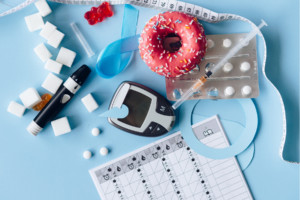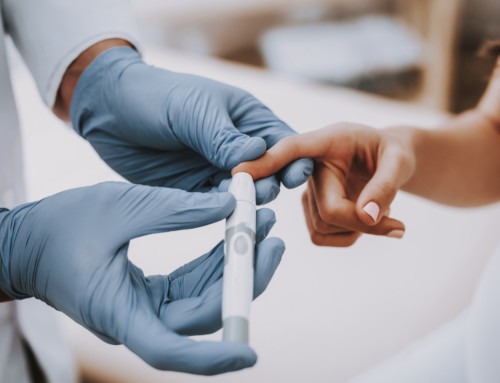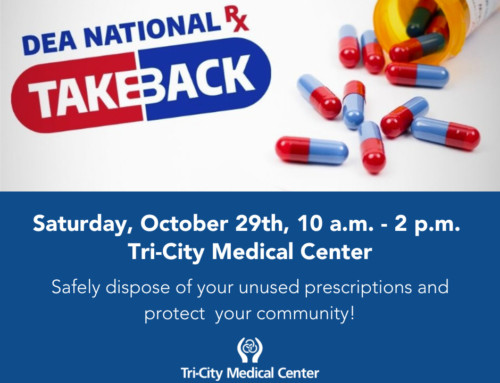Type 2 diabetes mellitus (T2DM) is a chronic condition in which blood glucose levels are elevated. Glucose comes from the foods we eat and with the help of insulin produced in the pancreas, it enters the body’s cells where it’s converted to energy. If it can’t get through the cell walls, then it builds up in the bloodstream causing the pancreas to go into overdrive and eventually it cannot make enough insulin to keep up. High blood glucose, or blood sugar, can potentially block blood vessels and damage nerves (diabetic neuropathy) in the body, which may lead to sexual and urological health problems.
 “Diabetes is a microvascular disease and affects all of the arteries in the body, including those in the penis,” said Jason Phillips, MD, MBA, FACS, co-founder of Urology San Diego and Chief of the Division of Urology at Tri-City Medical Center.
“Diabetes is a microvascular disease and affects all of the arteries in the body, including those in the penis,” said Jason Phillips, MD, MBA, FACS, co-founder of Urology San Diego and Chief of the Division of Urology at Tri-City Medical Center.
“Men who have diabetes commonly have erectile dysfunction, or ED, because the blood flow to the penis is compromised limiting their ability to have or maintain an erection. We recommend that our male patients maintain tight glycemic control, but we also offer a range of ED treatments, including medications, vacuum erection devices, intraurethral suppositories and prosthesis to improve function.”
The National Institute of Diabetes and Digestive and Kidney Diseases (NIDDK) reports that men with diabetes are three time more likely to develop ED than men without diabetes, and 10 to 15 years earlier.
In women, reduced blood flow can lead to vaginal dryness (it’s twice as common in women with diabetes as it is in those without) and nerve damage may result in loss of sensation and painful sex due to lack of lubrication. Both men and women may experience other sexual dysfunctions including a decreased libido and the inability to become aroused. The American Diabetes Association recommends keeping blood glucose levels in their target range to potentially improve these issues and prevent further damage.
“T2DM also predisposes men and women to urinary tract problems due to nerve damage (autonomic neuropathy) and poor glucose control that can affect the urethra, bladder, ureters and kidneys,” said Dr. Phillips. “People may lose their ability to feel that their bladder is full and retain urine, which can cause urinary tract infections (UTIs), while high levels of blood sugar may lead to yeast infections. These infections may spread to the kidneys and bladder. Although these infections are more common in women, men can get them too and most are treated with antibiotics. In severe cases of a neurogenic bladder, one in which the nerves and muscles no longer function, patients lose the ability to squeeze out the urine that has accumulated in their bladder and may require daily catheterization.”
“Men and women may also experience an overactive bladder with symptoms of urinary frequency, urgency and leakage, as well as polyuria that increases urine production, both of which dramatically impose on their activities of daily living,” added Dr. Phillips. “Patients have treatment options for overactive bladder including InterStim® Therapy, a surgical implant device, Botox, Percutaneous Tibial Nerve Stimulation, or PTNS, a drug-free option, as well as Axonics Therapy for neuromodulation. The goal is for each patient to regain bladder control.”
T2DM is also a leading cause of chronic kidney disease (CKD) according to the National Kidney Foundation and up to 40 percent may suffer from kidney failure and eventually need dialysis or kidney transplantation. Research has shown that T2DM also doubles the chance of getting kidney stones. These pebble-like stones form when urine has high amounts of calcium, oxalate and uric acid that form crystal deposits that the body can’t dilute. Insulin resistance raises the calcium levels in urine and high levels of insulin may make urine more acidic – both can increase the risk of kidney stones.
“This is one more reason why tight glycemic control is essential,” added Dr. Phillips. “Even though we can treat small kidney stones with ureteroscopy and laser lithotripsy and non-invasive shockwave therapy using sound waves, as well as large ones with percutaneous nephrolithotomy, no one wants to suffer the pain of kidney stones.”
“At Urology San Diego, our goal is to personalize our patients’ care to improve their quality of life,” said Dr. Phillips. “For those living with T2DM, we encourage them to maintain a healthy lifestyle to minimize the risk of sexual and urological health issues. This includes maintaining a healthy weight, eating a nutritious diet, exercising, managing stress and getting proper sleep. But we are here to help them with individualized treatments should these conditions arise. We understand that dealing with diabetes is hard and that talking about bathroom and bedroom issues can be embarrassing, but our goal is to collaborate with our patients to make things better.”
To learn more about the primary care services offered at Tri-City Medical Center, call 855-222-8262 to be referred to a Tri-City Primary Care physician
To learn more about the diabetes services offered at Tri-City Medical Center, call 855-222-8262 to be referred to an endocrinologist.
Click here to learn more about the urological services offered at Tri-City Medical Center or call 855-222-8262 to be referred to a urologist.







